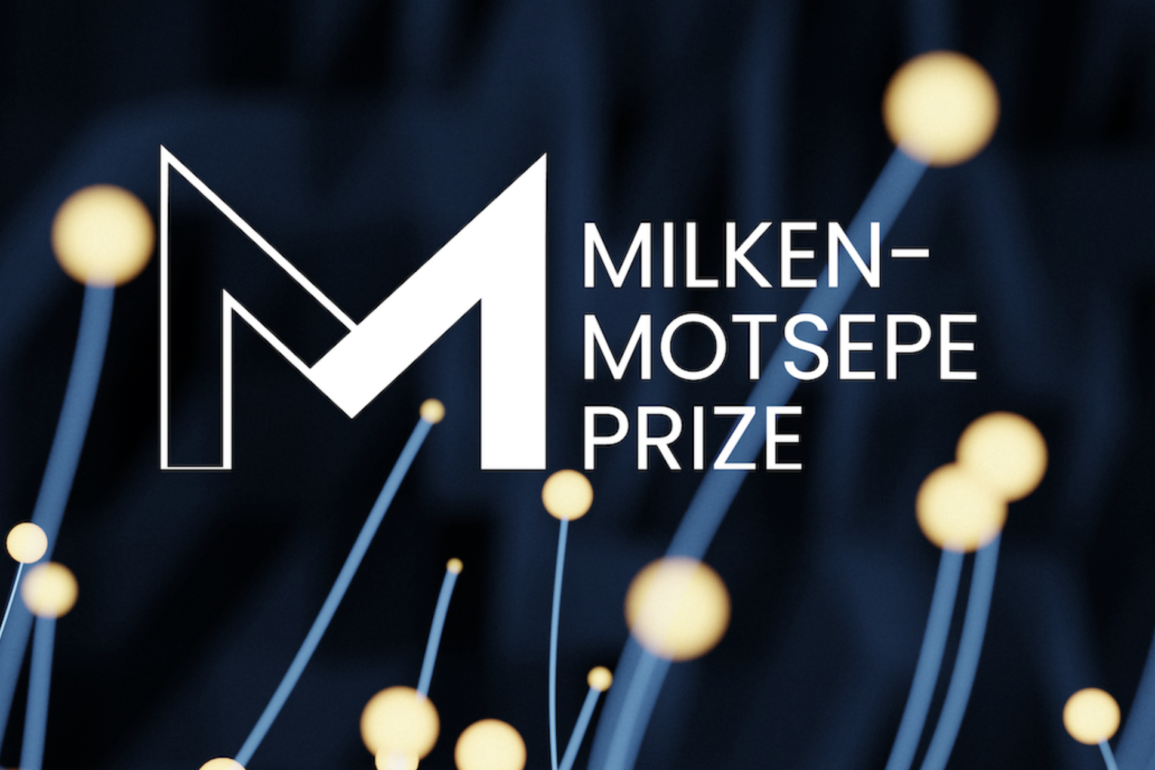The Milken Institute and the Motsepe Foundation have once again placed a bold wager on Africa’s technological future. On Wednesday, the two organizations announced the 10 semifinalists of the Milken-Motsepe Prize in AI and Manufacturing, each awarded $50,000 in unrestricted funding as they advance in a competition promising $2 million in total prizes.
The prize, which has grown into one of the more visible philanthropic showcases for African innovation, arrives with no shortage of ambition. Organizers describe it as a lever to “drive inclusive economic growth and sustainable development in Africa” by rewarding companies revolutionizing manufacturing value chains.
In Africa alone, artificial intelligence is projected to add nearly $3 trillion to the continent’s economy between 2024 and 2033. The semifinalists will present their innovations at the Milken Institute Middle East and Africa Summit in Abu Dhabi this December, where five finalists will be chosen to compete for a $1 million grand prize in Los Angeles next year.
For all the optimism, the framing of the prize reflects a familiar paradox in the world of development competitions: lavish sums and global visibility on one hand, structural blind spots on the other.
“By focusing on AI and manufacturing, this award identifies and supports visionary teams transforming industry with advanced technologies, which has a multiplying effect by creating economic opportunity for communities across Africa,” said Emily Musil, PhD, managing director at the Milken Institute.
The semifinalists, operating across five continents, embody this vision: Cameroon’s BleagLee, which recycles waste into high-value materials; South Africa’s DataProphet, building industrial intelligence software; Tanzania’s Freshpack Technologies, with AI-powered cold storage to reduce food waste; and Rwanda’s Toto Safi Limited, which enables women-led cooperatives to produce reusable hygiene products. Others hail from the United Kingdom, Egypt, the United States, India, and the United Arab Emirates.
Such diversity underscores both the strengths and the weaknesses of the model. While the prize markets itself as a platform for African growth, several semifinalists are headquartered outside the continent, raising questions about whether global firms are being positioned as the drivers of Africa’s manufacturing renaissance.
The competition’s criteria sought “established, scalable companies in the manufacturing sector with a track record of over two years of operation in Africa, demonstrated Series A+ traction, and a clear commitment to advancing job growth and workforce development.” Yet critics argue that such filters tilt the field toward already-capitalized ventures, sidelining the very small and medium-sized African firms that most struggle for early funding.
The timeline reflects the prize’s global stagecraft as much as its development goals. In December, semifinalists will pitch before investors and judges who will weigh “commercial viability, operational economics, technological integration, and market scalability.” Beyond the $1 million grand prize, additional awards will recognize a runner-up and the “Most Advanced Use of Fourth Industrial Revolution Technologies.”
But past rounds of innovation prizes — not just Milken-Motsepe’s — suggest that capital alone rarely shifts entrenched challenges. Electricity access remains patchy, cross-border logistics remain costly, and governments have yet to harmonize digital infrastructure standards. These are barriers that a prize, no matter how well-funded, cannot dissolve.
Since its launch in 2021, the Milken-Motsepe Innovation Prize Program has attracted over 12,000 innovators from 136 countries, and the community of participants has become a signal of Africa’s growing profile in global tech. Yet, four years in, observers are asking whether the prizes are leading to measurable industrial transformation or whether they primarily function as showcases of philanthropic branding.
To its credit, the Motsepe Foundation has positioned these awards not just as cash injections but as gateways to networks of mentorship and investors. That connectivity is often more valuable than the prize money itself, which, for a Series A company, is a fraction of typical fundraising targets. The challenge is whether those networks extend meaningfully into Africa’s manufacturing ecosystems or remain tethered to global conferences in Abu Dhabi and Los Angeles.
The semifinalists’ projects carry promise: waste transformed into polymers, cooling systems tackling post-harvest losses, AI platforms streamlining energy use. They are compelling prototypes of how AI could reshape African industries. But they also carry the weight of expectations that $2 million and a global stage cannot meet alone.
The prize, in other words, does not resolve the continent’s financing gap for manufacturing innovation — estimated in the hundreds of billions — nor does it substitute for the systemic investments in infrastructure, policy reform, and workforce training that AI-driven industries demand.
Still, for entrepreneurs like Cameroon’s Juveline Ngum Ngwa of BleagLee or Rwanda’s Faith Waraga of Toto Safi, the milestone matters. Even if the awards do not solve Africa’s structural hurdles, they offer a rare chance at visibility, validation, and momentum. And in a sector where perception often precedes capital, that may be its quietest but most durable contribution.
The 10 semifinalists for the Milken-Motsepe Innovation Prize Program in AI and Manufacturing:
Team Lead: Juveline Ngum Ngwa
Based in Cameroon, BleagLee is a waste management and recycling company that uses AI and specialized software to rapidly identify, collect, and transform plastic, agricultural, and electronic waste into high-value inputs like engineered recycled polymers, 3D printing filaments, and bio-based carbon materials.
- DataProphet
Team Lead: Ridwaan Seedat
Based in South Africa, DataProphet is an industrial intelligence technology and advisory company providing production intelligence solutions for machine builders and manufacturers.
- Digitech Oasis Limited
Team Lead: Ayan MohamedBased in the United Kingdom, Digitech Oasis is an award‑winning AI and robotics company developing robotic systems and industrial automation platforms to modernize warehouse and fulfillment operations across industries.
- Freshpack Technologies
Team Lead: Editha MshiuBased in Tanzania, Freshpack Technologies is a cold-storage solution company pioneering AI-powered cooling innovation to reduce food waste for Africa’s informal markets.
- GreenBDG Africa
Team Lead: Songo DidizaBased in South Africa, Green Building Design Group Africa (GreenBDG Africa) is a tech-enabled advisory firm offering climate-smart infrastructure solutions and energy optimisation strategies for real estate and manufacturing clusters.
- INDOS
Team Lead: Ahmed Nounou
Based in Egypt, INDOS is an industrial digitisation company transforming labour-intensive manufacturing floors into AI-powered, data-driven environments to boost productivity and drive quality in real-time. - Spiro
Team Lead: Kaushik BurmanBased in the United Arab Emirates, Spiro provides accessible and affordable mobility solutions through manufacturing innovative, eco-friendly electric transportation.
- Thola Inc.
Team Lead: Nneile NkholiseBased in the United States, Thola is an AI-powered software platform that provides real-time energy monitoring, forecasting, and ESG performance insights to help industrial facilities become insurable, resilient, and grid-conscious.
- Torchit
Team Lead: Hunny BhagchandaniBased in India, Torchit is a social-tech enterprise that designs and manufactures affordable, AI-powered assistive technologies to empower persons with disabilities with mobility, literacy, and digital independence.
- Toto Safi Limited
Team Lead: Faith Waraga
Based in Rwanda, Toto Safi is an AI-enabled, circular textile manufacturing platform, enabling women-led tailoring cooperatives to produce reusable hygiene products such as diapers and period pants at scale.




